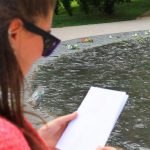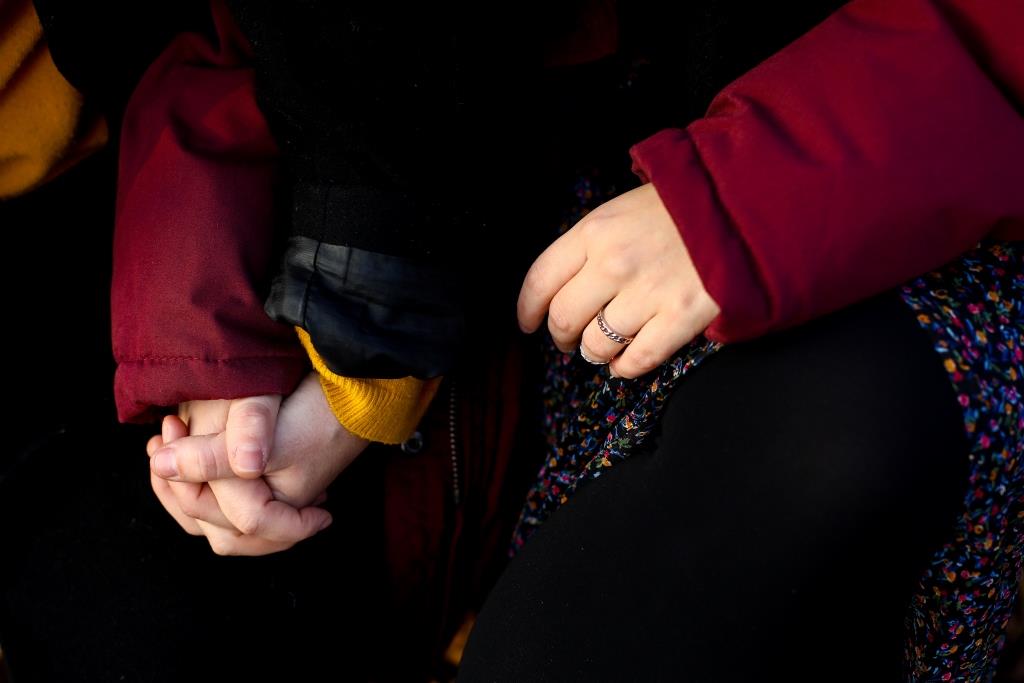
Love for A from Sarajevo and D from Čačak means respect. For two years now, these two twenty-three-year-olds have been building their love story on respect, overcoming all obstacles and prejudices.
It Was Just Another Tinder Date
A and D met, as they say themselves, on a gloomy autumn day in Tuzla, mostly out of boredom. They now believe that D’s arrival in Tuzla was destiny, just like the first contact they made on Tinder.
“D had a friend in Tuzla who begged her for a long time to come to Tuzla, but D never wanted to. So, the friend literally started the car, went to pick her up in Serbia and brought D to Tuzla. She basically kidnapped her. I lived in the center of the city at the time. And literally two days before, out of fun, I installed Tinder for myself,” A recalls.
“I was on Tinder because I travel a lot. I’m always out of the country and that’s how I meet people,” adds D.
They say that they did not have any romantic interest in each other during their first meeting, but they continued to hang out and get to know each other. They started a relationship after some time.
“We didn’t get along at all, but we continued to see each other again,” says D.
“She stayed longer in Tuzla because of me. And so I immediately went to Čačak with her. I just packed up and left,” says A.
Their Families Support Them
They met each other’s families at the beginning of their relationship. They are happy because they have their support, especially because they are aware that this is not always common.
Their parents love their partners and they all hang out often. This, of course, was preceded by getting to know each other and gaining trust.
“D visited me for the first time sometime around the New Year. My mom and my sister knew I was gay, I told them. My dad didn’t know, although I think he was very much aware of it,” says A.
D explains that it was clear to her family that it was not just a friendly relationship between her and A, but that her sisters talked to her father about it first.
“They talked to him. We have yet to talk about it. But he knows about A. Even our parents talk to one another, they hang out,” D proudly points out.
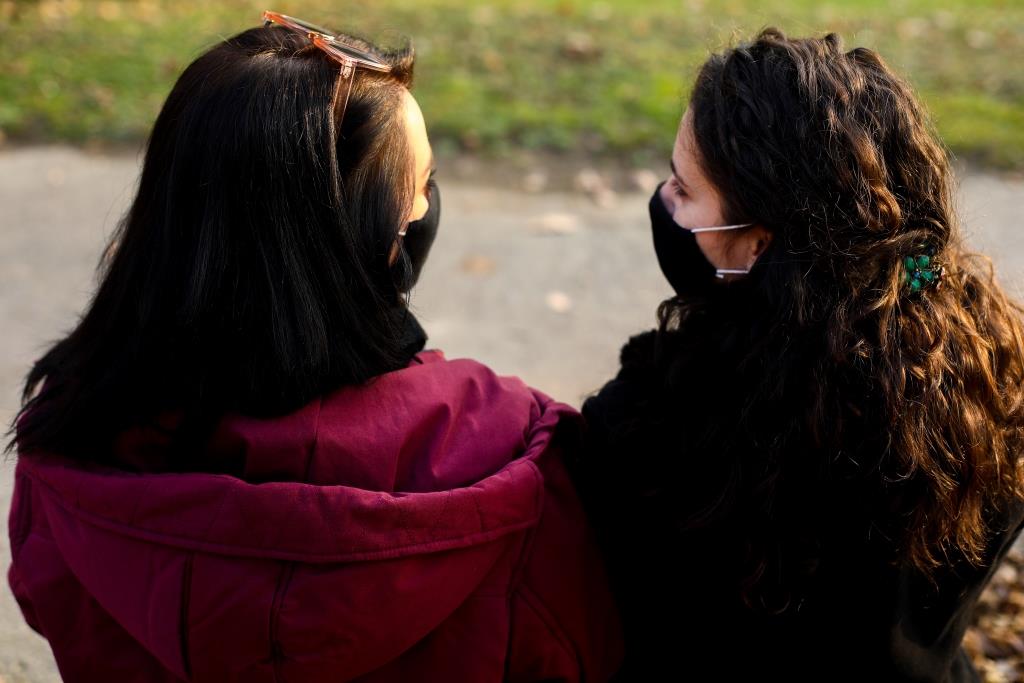
A Difficult Path To Accepting This Part Of Their Identity
They explain that although they were lucky to be accepted by their parents, it was challenging at the beginning.
A first came out to her mom and sister while still in high school. She was not met with understanding at first. She was even beaten up and locked in a room. But she did not give up her fight.
“I am who I am. I did not give up. I deliberately brought girls into our house. I did everything to show [them] that this is okay. Even though some of those girls were just friends, we weren’t in a relationship,” recalls A.
After some time, her mother accepted her for who she is, but other doubts and worries arose.
“My mom was worried that I would not finish college. She feared I would choose a life on the street. But life goes on, no matter who I am, a lesbian or not. Still, I had to persuade them that everything will be okay,” concludes A.
D’s experience was not much better. Her sister, without her consent and knowledge, told their parents about D’s sexuality when she was not yet ready for it.
“She pretended to accept me as such, only to deliberately tell our parents,” recalls D.
But she was patient, and her family’s acceptance came gradually. She adds that even in her hometown people are not so open at first, but in the end, they accept people from the LGBTIQ community.
“Čačak is a bigger city, but not as open to diversity as Belgrade, or Novi Sad. In the beginning, different people are always attacked, always in the center of attention. They are torn to pieces, but in the end, people get used to it,” says D.
“But that doesn’t mean acceptance, it’s just tolerance, and that’s the problem – they will never accept you. I have decided not to come out at work. I work with children and I think I would have a problem. Children are not the problem, but their parents,” concludes A.
Society Still Does Not Fully Accept Differences
The two of them try to get to know the culture and customs of the other as much as possible and share them with their families. But they point out that society is still not open to differences, primarily because of wartime traumas. Being a lesbian only further complicates their position in society.
“They say that they accept it, but the reality is different. People are quite poisoned by their past traumas,” explains D.
“D and I learn everything from each other regarding our traditions, religions. I asked her what the Christmas customs are. Once her relative asked me if women in our country are circumcised at birth as men are. I was shocked by the question, but I don’t blame her. I mean, I was the first Muslim woman that her family met,” says A.
Although they are currently together in Bosnia and Herzegovina, they say that they will leave if the opportunity comes because they still cannot fully enjoy all their rights and live freely here.
“We cannot get married, cannot have children. If we want these things, we have to leave Bosnia,” says A.
“If given the chance, we would leave,” adds D.
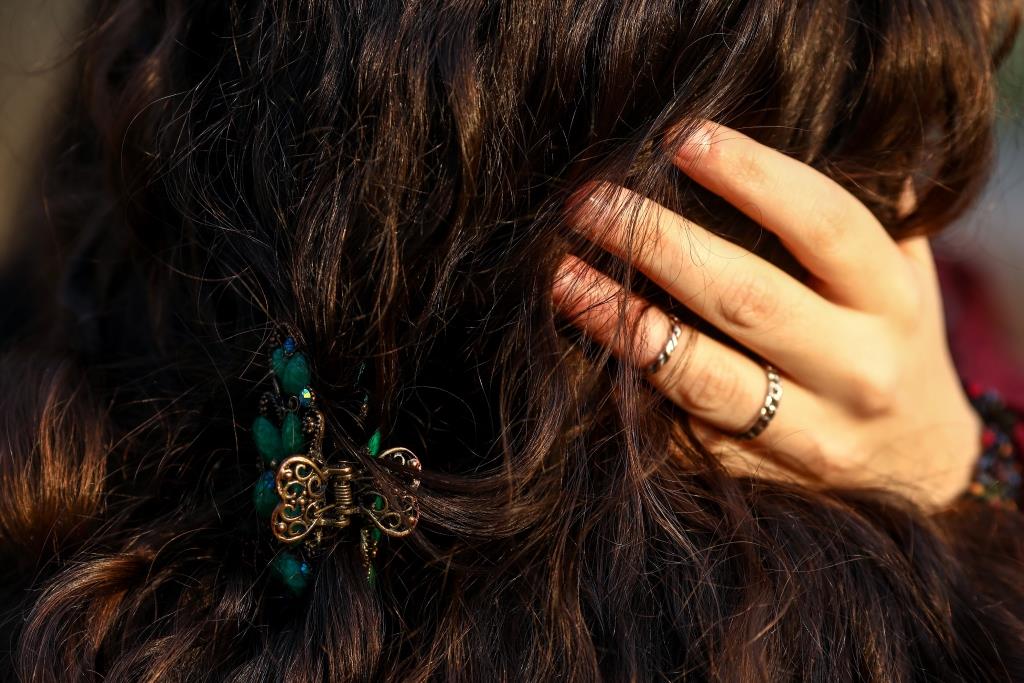
People Are More Open To The LGBTIQ Community, But That Is Still Not Enough
People believe that there is a better acceptance of the LGBTIQ community in our societies, but that is still not enough.
“We want respect. It is important to me that there comes a period in my life when people would at least know what this means. The situation is different from 10 years ago, I see progress,” A points out.
D says that this change happened thanks to NGOs fighting for human rights, including the rights of the LGBTIQ community. But despite all these efforts, A and D still cannot fully enjoy their rights.
“In Sarajevo, there is the SOC Association and the Cure Foundation. Without these associations we would be nowhere. We would remain invisible. It’s a small group of people. I know them all. I hang out with them. I’m really grateful that there is someone who does something for us,” says A.
They advise young people from the LGBTIQ community to try to have a circle of trusted friends and a safe zone. There are always organizations they can turn to for help if they need it.
Coming out to others is one of the most important, but also the most difficult, steps for any person who is part of the LGBTIQ community. However, they believe that it is necessary to encourage yourself to take such a step and to never agree to it if you are not completely ready.
“My advice is to get ready for that moment and to make sure that no one steals that moment from you like it happened to D,” says A.
“It will happen only if you accept yourself first,” adds D.
Love Before Flags
They believe that the secret to their successful relationship is respect, understanding, and open communication. Respect and understanding are something all post-war societies need. Divisions deepen when societies do not deal with the trauma people have gone through. Now, new generations in the Western Balkans are suffering because of this.
“There is lack of proper education, a lack of greater social support for people who experienced trauma in the war and post-war period. These traumas do not necessarily mean that someone is poisoned with hatred, but simply that he is not ready to get rid of the evil happening in the past,” explains A.
D says that parents may not teach young people to hate each other, but because of the traumas they have gone through, they pass that trauma on to the next generation. They teach them to shy away from each other. Yet both A and D believe that it is also the next generation’s responsibility to move away from this, to grow and to learn about others in a healthier way.
“Mom sometimes cries when she remembers the war, so we talk about it. We watch war movies today, and they always refer to the aggressor side. But then we sit down, me, D, and mom, and discuss it,” A explains.
D adds that it is all about open conversation.
“Both of us have difficult personalities. However, we agreed a long time ago to respect each other. The rest will come easy. I am especially pleased that we have no shame in front of each other. We sit down, drink coffee, and tell each other everything,” A proudly points out.
“Respect is the definition of every love,” concludes D.
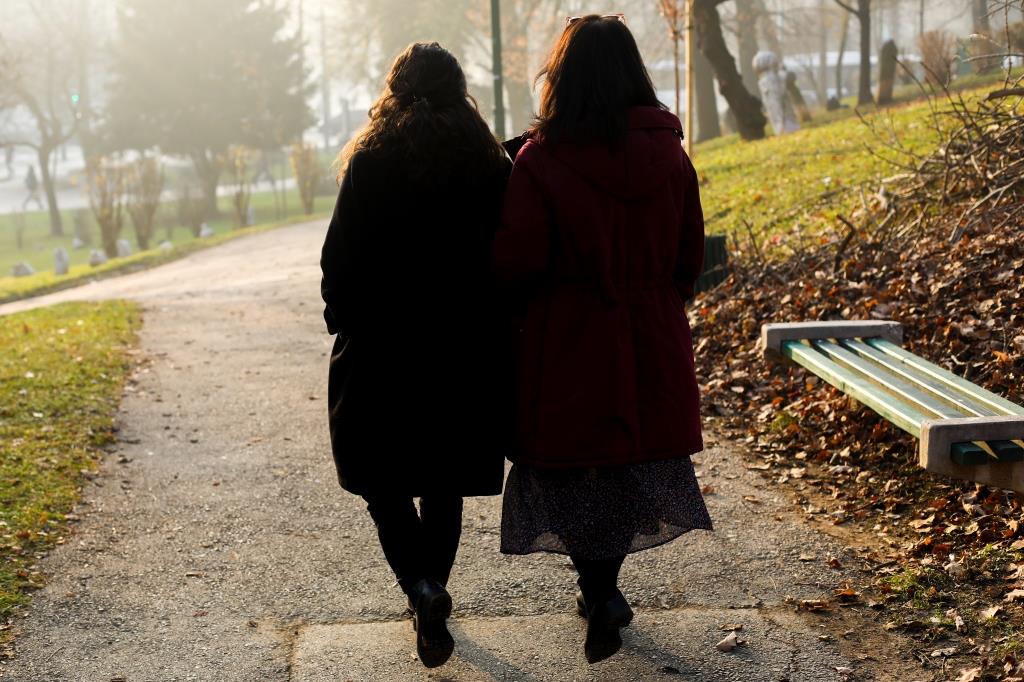
Text editing: Balkan Diskurs team; Photography: Armin Durgut; Photo Editor: Dr. Paul Lowe.
This story is part of the “Love Tales” project implemented by the Post-Conflict Research Center (PCRC) with a group of Balkan Diskurs youth correspondents. The project is implemented with financial support from the VII Academy, the BOLD program of the US Embassy in BiH, and PCRC’s core grants, with the aim of challenging the common narrative that real connections between Bosnia’s different ethnic groups are unattainable by documenting stories of successful interethnic relationships across the country.



